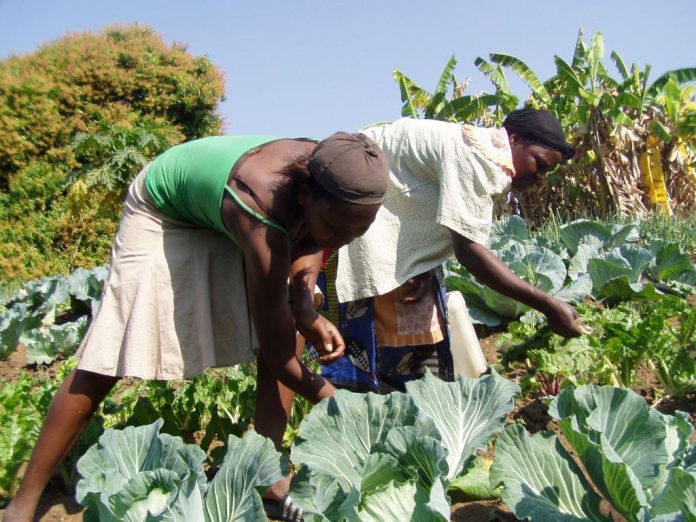Introduction
As the global demand for healthy, eco-friendly food continues to rise, organic farming is becoming a game-changer in Africa. With its rich agricultural heritage and diverse ecosystems, Africa is uniquely positioned to become a global leader in organic farming. This farming approach not only promotes environmental sustainability but also offers economic opportunities for smallholder farmers and agribusinesses. So, what does the future hold for organic farming in Africa?
Why Organic Farming Matters
Organic farming is a system that avoids synthetic fertilizers, pesticides, and genetically modified organisms (GMOs). Instead, it relies on natural methods such as composting, crop rotation, and biological pest control.
Key Benefits:
- Healthier Food: Organic crops are free from harmful chemicals, making them safer for consumers.
- Environmental Sustainability: Organic methods improve soil health, conserve water, and reduce pollution.
- Economic Opportunities: Growing demand for organic products opens up local and international markets for farmers.
- Climate Resilience: Organic farming builds healthier soils that retain water and nutrients, helping farmers withstand droughts and floods.
The benefits of organic farming extend beyond the farm, creating healthier ecosystems and communities.
Current State of Organic Farming in Africa
While organic farming is gaining momentum in Africa, it still represents a small fraction of the continent’s agricultural output. Countries like Uganda, Kenya, and Tunisia are leading the way, with Uganda recognized as one of the top organic producers globally. Ghana is also making strides in organic farming, particularly in high-value sectors such oil palm and vegetables, as it begins to tap into the growing demand for organic products both locally and internationally.
Challenges:
- Limited Awareness: Many farmers are unaware of the benefits and techniques of organic farming.
- Certification Costs: Obtaining organic certification can be expensive and time-consuming.
- Market Access: Farmers often struggle to find buyers willing to pay premium prices for organic products.
- Resource Constraints: Organic farming requires initial investments in training, inputs, and infrastructure.
Despite these challenges, the push for sustainable agriculture in Africa continues to grow.
The Future Trends of Organic Farming in Africa
- Growing Consumer Demand
The global organic food market is projected to grow at a rate of 10% annually, reaching $200 billion by 2025. In Africa, the demand for organic products is increasing steadily, especially in urban areas. For example, in South Africa, organic food sales have seen an annual growth rate of 20% over the past five years. This surge in demand reflects the growing health consciousness among African consumers, creating a significant market for organic farmers.
- Technological Innovations
The organic farming sector is benefiting from technological innovations that make the transition to organic practices easier. In Kenya, organic farming apps are helping farmers monitor pests, manage crops, and even access organic certification processes, improving their yields and productivity. The adoption of these technologies is expected to grow by 25% in the next five years, making organic farming more efficient and accessible for smallholder farmers across the continent.
- Government Support
Several African governments are increasingly supporting organic farming as part of their sustainable agriculture initiatives. For instance, Ethiopia has invested over $3 million in organic farming programs, offering subsidies and training to farmers. This government backing is expected to help Ethiopia increase its organic production by 15% annually, paving the way for other African countries to follow suit.
- Export Opportunities
The demand for organic products in international markets is expanding. In 2020, organic exports from Africa were valued at over $1.3 billion, and this number is expected to grow by 15% annually in the coming years. African countries like Kenya, Uganda, and Ghana are positioning themselves to meet this rising demand. For example, Ghana’s organic oil palm and vegetable exports are expected to see significant growth as the country increasingly taps into lucrative organic markets in Europe and North America.
How to Foster the Growth of Organic Farming in Africa
- Education and Training
Governments and NGOs should offer training programs to teach farmers about organic methods, soil health, and pest control.
- Reduce Certification Barriers
Simplify the certification process and provide subsidies to help farmers afford it.
- Market Development
Create platforms and cooperatives to connect organic farmers with buyers locally and internationally.
- Incentives for Farmers
Provide tax breaks, grants, and loans for farmers transitioning to organic agriculture.
- Research and Innovation
Invest in research to develop region-specific organic farming techniques and pest-resistant crop varieties.
By addressing these barriers, the adoption of organic farming in Africa can accelerate, benefiting millions of farmers.
Success Stories in African Organic Farming
- Uganda: A Global Organic Leader
Uganda has over 200,000 organic farmers, exporting products like coffee, bananas, and sesame to Europe. The country’s organic sector contributes significantly to its GDP.
- Kenya: Organic Hubs
Organizations like the Kenya Organic Agriculture Network (KOAN) are creating awareness and providing market access for organic farmers.
- Tunisia: Organic Olive Oil
Tunisia has become a top exporter of organic olive oil, proving the potential of high-value organic products.
These examples showcase the potential of sustainable agriculture to transform lives and economies.
Conclusion
The future of organic farming in Africa is bright. By embracing organic methods, farmers can boost their incomes, protect the environment, and meet the growing global demand for sustainable food. With the right support from governments, NGOs, and the private sector, Africa can position itself as a powerhouse in organic agriculture, driving sustainable development for generations to come.
The benefits of organic farming, paired with advancements in technology and policy support, make this approach indispensable for the future of farming in Africa.


